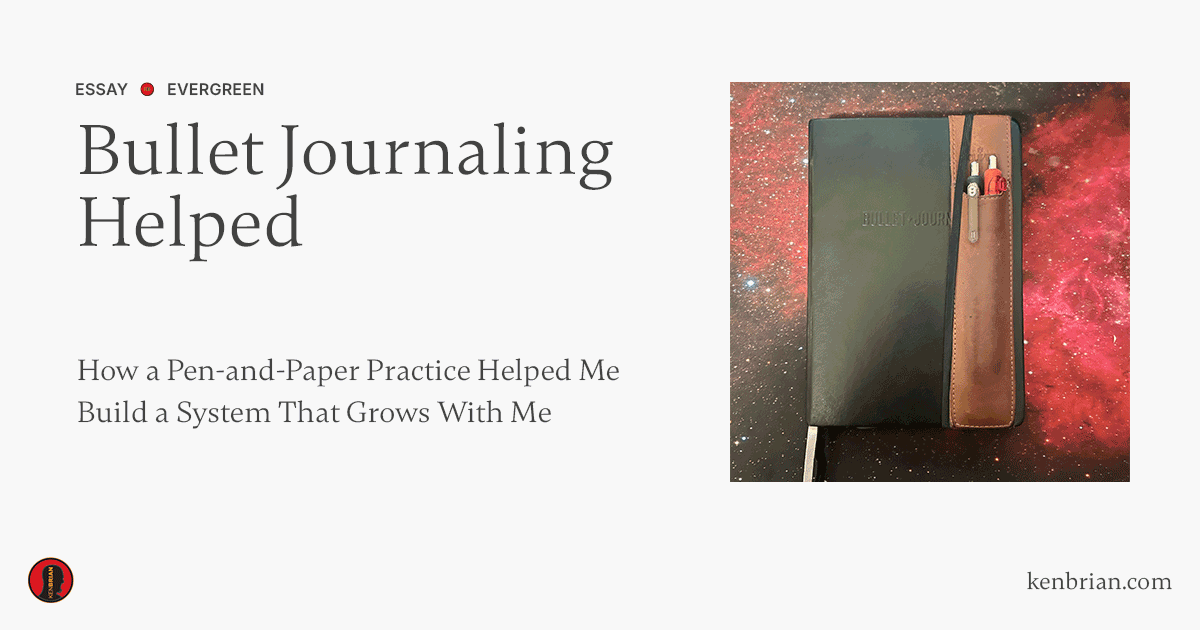Latest in: Personal Development
Thanks to Tim, I've learned to question the path, embrace the change, and above all, take the damn reins. 20 Years of Experiments with Tim Ferris Bill Gurly's interview with Tim Ferriss offers a …
How a Pen-and-Paper Practice Helped Me Build a System That Grows With Me
View this post on Instagram A post shared by Dr. Jordan B. Peterson (@jordan.b.peterson) I've been thinking a lot about writing lately, and I have realized just how much of what a fundamental skill …
From Digital to Physical Creations I have spent a lot of my life making things (both online and off). I worked in construction, built skateboard ramps, and even helped create elaborate retail spaces for …
Subscribe to be updated about new content.
kenbrian
